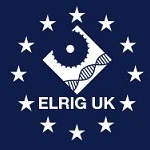Authors
L Brady1; K Power1; Z McCrea1; M White1; W Northey2; G Coyne2; M Meagher2; D Murphy2; E Gilbert1; O Teltsh1; M Greally1; CP Doherty3; N Delanty4; S Grealis1; N Ryan1; S Skeffington1; T Robinson1; K Marshall5; O Rigby2; GL Cavalleri1;
1 RCSI University of Medicine and Health Sciences, Ireland; 2 Akkure Genomics, Ireland; 3 St. James's Hospital Dublin, Ireland; 4 Beaumont Hospital Dublin, Ireland; 5 Microsoft, Ireland
Abstract
Background: Personalised medicine aims to provide individual treatment strategies for patients. With increasing targeted therapies, clinical trials will become more personalised and stratified. However, recruitment remains a significant barrier for trial sponsors, clinical research teams and patients. We present BESTS, a cloud-based platform developed for collaborative use by patients, healthcare providers (HCPs) and clinical research organisations. It allows patients to be matched to trials via their clinical and genomic information, while retaining control and ownership of that data.Methods: A process of requirements engineering and prototyping informed platform development and design layout. Twenty-five participants representing patients and HCPs engaged in a series of qualitative research methods, including workshops and ethnographic fieldwork, to identify value proposition and user requirements. Blockchain technology was architected to manage dynamic consent. A genomics module was developed for participants to upload existing data or access sequencing through BESTS. An AI algorithm was designed to interrogate data against the eligibility criteria of clinical trial databases. Results: BESTS value propositions for patients include becoming more empowered around use of their health data, greater knowledge of ongoing research and personalised trial-matching. BESTS value propositions for HCPs includes the ability to quickly identify patients and demonstrate suitability as trial site. A prototype is under development and its usability and utility will be assessed in controlled hospital environments with epilepsy patients and HCPs. Conclusion: Privacy by design and a user-centred approach in the development of BESTS enables real-world effectiveness and provides for high-resolution recruitment to clinical trials, facilitating faster introduction of treatments into care pathways.

